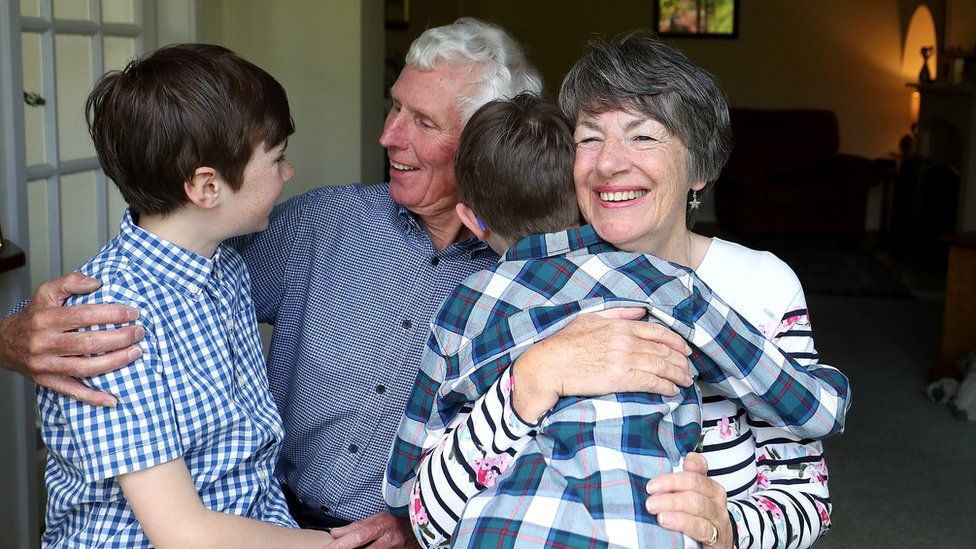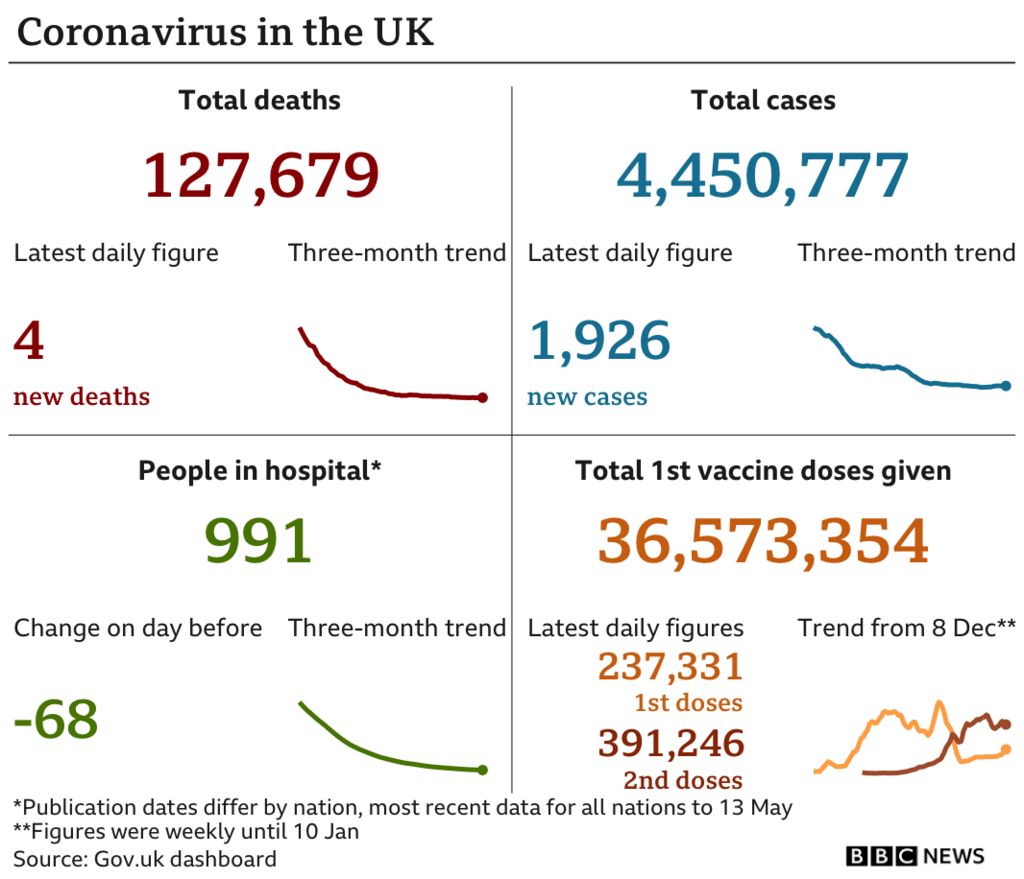
People must continue to play their part in stopping Covid, Boris Johnson has said ahead of the easing of lockdown in England, Wales and most of Scotland.
From Monday, millions of people will be able to socialise indoors in limited numbers, hug loved ones and visit pubs and restaurants inside.
The ban on foreign travel will also be lifted and replaced with new rules.
But Mr Johnson said everyone still needed be cautious, and also get tested twice a week.
“Together we have reached another milestone in our roadmap out of lockdown, but we must take this next step with a heavy dose of caution,” said the prime minister.
He added that “everyone must play their part – by getting tested twice a week, coming forward for your vaccine when called and remembering hands, face, space and fresh air”.
“I urge everyone to be cautious and take responsibility when enjoying new freedoms today in order to keep the virus at bay.”
Anyone in England and Scotland can order free lateral flow tests – which give results in 30 minutes – even if they do not have symptoms. In Wales and Northern Ireland, they are available for certain people, such as those who cannot work from home.
The whole of Great Britain – England, Scotland and Wales – will see lockdown eased on Monday, although the changes are different in each nation. Two areas of Scotland – Glasgow and Moray – will not have their rules eased after a spike in cases.

What’s changing on Monday?
England:
- People can meet indoors in groups of up to six or two households, or in groups of up to 30 outdoors. Overnight stays are allowed
- Pubs, bars and restaurants can serve customers indoors
- Museums, cinemas, children’s play areas, theatres, concert halls and sports stadiums can all reopen, as can hotels
- Social distancing guidance is changing and contact with other households like hugs is a matter of personal choice
Scotland (except Glasgow and Moray):
- People can meet indoors in groups of six from up to three households. Outdoors, up to eight people from eight households can mix
- Pubs and restaurants can serve alcohol indoors until 22:30
- Entertainment venues such as cinemas, theatres and bingo halls can reopen and up to 100 people are allowed at indoor events
Wales:
- Pubs and restaurants can reopen indoors and customers can meet in groups of up to six from six households
- All holiday accommodation can reopen
- Cinemas, bowling alleys, museums galleries and theatres can reopen
- No change to indoor socialising – this is still restricted to extended households where two households can mix with each other and have physical contact
And in all three nations, foreign holidays are allowed.
Northern Ireland is going to review lockdown rules on 20 May, with the hope that some could be lifted on 24 May.

It comes as the Indian variant continues to spread in the UK, with mass testing rolled out to hotspots such as Bolton in Greater Manchester and parts of London, Sefton and Worcestershire.
At the weekend, the British Medical Association – which represents doctors – said it was a “real worry” that the easing was still going ahead while the Indian variant was spreading and many younger people were not vaccinated.
Mr Johnson said the government was keeping the variant “under close observation” and “taking swift action where infection rates are rising”.
“The current data does not indicate unsustainable pressure on the NHS and our extraordinary vaccination programme will accelerate – with second doses being bought forward to give the most vulnerable maximum protection,” he said.
Scientists believe the Indian variant does spread more easily, but early data suggests vaccines still work. However, the exact impact on vaccine efficacy – if any – is still to be firmed up.

Latest government figures released on Sunday showed a further 1,926 cases had been recorded, and a further four people had died.
The number of people in the UK who have received a first dose of the vaccine has now topped 36.5 million, while the number of second doses given is at 20.1 million.
Also from Monday, people travelling abroad will be able to use the NHS app – which is different to the NHS Covid-19 app – to prove they have had the vaccine.
Transport Secretary Grant Shapps previously said people who have had both doses will be able to use the app at border controls, although the government says people should still check countries’ entry requirements as tests or quarantine might still be needed.
Speaking to the BBC on Sunday, Health Secretary Matt Hancock defended the easing of lockdown rules on Monday, and said the government’s strategy was to “replace the restrictions with vaccination” as the first line of defence against the virus.
He said the government would decide on 14 June whether all lockdown rules could be lifted on 21 June, as was the government’s original plan.
But Prof Adam Finn, a member of the Joint Committee on Vaccination and Immunisation, told the BBC that people should still be “very cautious about mixing” on Monday.

- LOOK-UP TOOL: How many cases in your area?
- YOUR QUESTIONS: We answer your queries
- VACCINE: When will I get the jab?
- NEW VARIANTS: How worried should we be?


- MOTHERLAND: Comedy navigating the trials and traumas of parenting
- RACISM IN THE MUSIC INDUSTRY: Little Mix’s Leigh-Anne confronts her own experiences

